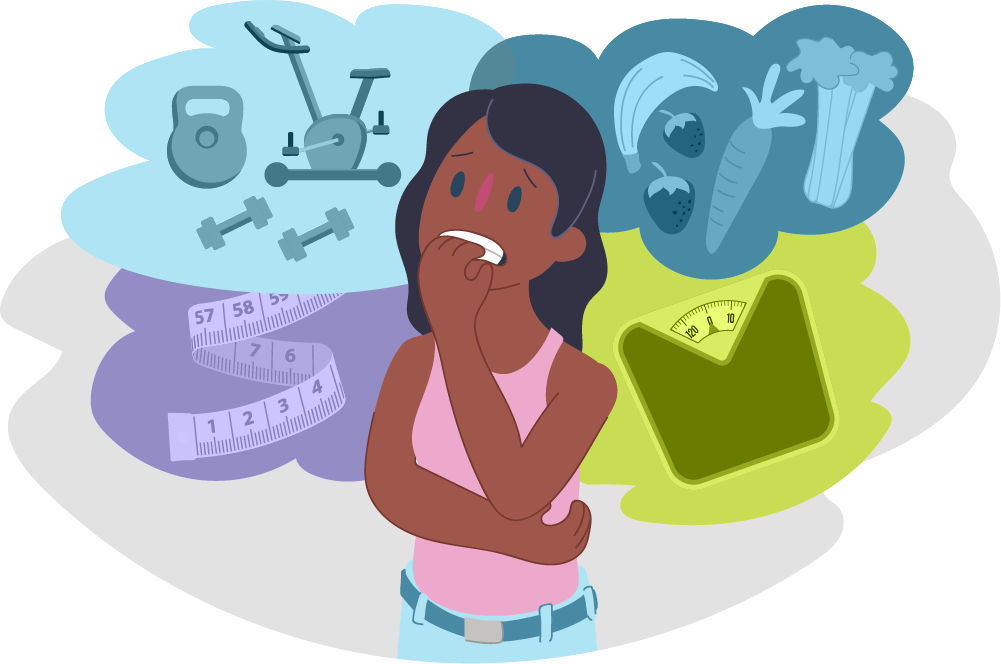
6 Common Types of Eating Disorders (and Their Symptoms)
Eating disorders are complex mental health conditions that involve disordered eating behaviors, distorted body image, and emotional distress. Here are six common types of eating disorders and their corresponding symptoms
1. Anorexia Nervosa
- Intense fear of gaining weight or becoming fat, despite being underweight
- Restricted food intake leading to severe weight loss
- Distorted body image, with an excessive focus on body shape and weight
- Obsessive thoughts about food, calories, and body image
- Excessive exercise or compulsive movement to burn calories
- Amenorrhea (loss of menstrual periods) in females
2. Bulimia Nervosa
- Recurrent episodes of binge eating, characterized by consuming large amounts of food within a discrete period
- Feelings of loss of control during binge episodes
- Compensatory behaviors to prevent weight gain, such as self-induced vomiting, excessive exercise, or the misuse of laxatives, diuretics, or other medications
- Frequent fluctuations in body weight
- Preoccupation with body shape and weight
3. Binge-Eating Disorder
- Frequent episodes of binge eating, similar to bulimia nervosa
- Lack of control over eating during binges
- Eating more rapidly than usual, even when not physically hungry
- Eating until uncomfortably full
- Eating large amounts of food when not physically hungry
- Feelings of guilt, shame, or distress following binge episodes
4. Avoidant/Restrictive Food Intake Disorder (ARFID)
- Limited food choices due to sensory sensitivities, fear of choking, or concerns about the consequences of eating
- Weight loss, nutritional deficiencies, or failure to meet nutritional needs
- Disinterest in food or low appetite
- Avoidance or restriction of certain food textures, colors, or smells
- Anxiety or distress related to eating or specific foods
5. Orthorexia Nervosa
- Obsessive focus on consuming only "clean" or "pure" foods that are perceived as healthy
- Strict adherence to self-imposed dietary rules and restrictions
- Preoccupation with the quality and purity of food, rather than quantity or calories
- Anxiety or guilt when deviating from rigid dietary rules
- Social isolation and impaired ability to enjoy meals in social settings
6. Other Specified Feeding or Eating Disorder (OSFED)
- Symptoms that do not meet the full diagnostic criteria for other eating disorders but still significantly impact an individual's well-being
- Examples include atypical anorexia nervosa (meeting all criteria for anorexia except being underweight), purging disorder (purging behaviors without binge eating), and night eating syndrome (consuming a significant portion of daily caloric intake during the nighttime)
It is important to note that eating disorders can have severe physical and psychological consequences. If you or someone you know is struggling with disordered eating behaviors, it is crucial to seek professional help from healthcare providers or specialized eating disorder treatment centers.
